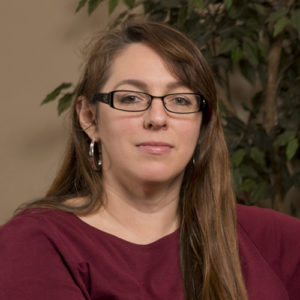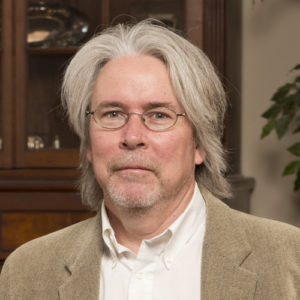Two MC faculty members receive ACA grants
Two Maryville College faculty members have received grants through the Appalachian College Association’s Faculty Fellowship program to pursue research in their respective fields.
Kim Trevathan, associate professor of writing communication, received a fellowship to spend spring 2018 researching and executing a 652-mile kayak trip up the Tennessee River from Paducah, Ky., to Knoxville, Tenn. The journey will be the basis of his fourth book of nonfiction.
Trevathan is quite familiar with this type of excursion, as his first book, “Paddling the Tennessee River: A Voyage on Easy Water” was the result of another trip down the Tennessee River. This time, however, Trevathan will spend three months traveling upstream, making for a more physically challenging trip.
The anticipated journey will take place exactly 20 years after his first trip down the river in 1998.
The project and resulting manuscript will focus on three main areas: how the river has changed since he last paddled it, with a focus on environmental quality, commercial and residential development, and landscape aesthetics; issues involving wellness and ageing “on a trip which will test me, in many ways, more than the first one, particularly since I’ll be going upstream and using a body that’s two decades older,” Trevathan wrote in his proposal; and exploring the different perspectives that going upstream instead of downstream will create, “including the historical precedents of the 17th and 18th century voyageurs and more recent upstream paddlers such as Verlen Kruger.”
Trevathan holds a bachelor’s degree from the University of Louisville, master’s degrees from the University of Illinois and the University of Wyoming, and an MFA from the University of Alabama. He writes and teaches fiction, creative nonfiction, nature writing and journalism.
In addition to his first book, he has also published two books: “Coldhearted River: A Canoe Odyssey Down the Cumberland” and “Liminal Zones: Where Lakes End and Rivers Begin.” He also writes a column, “Voice in the Wilderness,” which is published in “The Knoxville Mercury”, a weekly newspaper.
In her letter of support for Trevathan’s faculty fellowship, Vice President and Dean of the College Dr. Barbara Wells praised Trevathan’s “impressive track record,” with three creative nonfiction books already published.
“This project is important to Maryville College because a teacher of writing is most credible, and arguably most effective, when he also writes,” Wells wrote. “As a serious writer, Kim serves as a powerful role model for our students. As a Maryville College faculty member, his books also serve to enhance the reputation of the College. Furthermore, because his work engages nature in our region, his publications draw attention to the natural beauty of our region.”
Dr. Karen Beale, associate professor of psychology, received a fellowship to pursue a project titled “The effects of sexual health education on college student outcomes: A comparison between the U.S. and the Netherlands.”
“In August of 2016, the Center for Disease Control (CDC) released a report showing that ‘nearly half of the 20 million new sexually transmitted infections (STIs) diagnosed each year are among young people aged 15-24 years.’ This is not due to a higher instance of sex behaviors in this group, but instead, to the lack of using safer sex practices,” Beale wrote in the grant proposal, adding that in the United States’ Bible Belt states, sex education is abstinence focused, and restrictions are placed on access to birth control.
In contrast, Beale wrote, sex education in the Netherlands ranks among the best in the world, and the country’s rates of teen pregnancy, abortion and STIs are drastically lower. There is one important similarity with the U.S.: the Netherlands has “high rates of religious conservatism in their Bible Belt (a strip of land through the middle of the country with high levels of protestant religious adherence, named after the US Bible Belt).”
Beale will partner with Dr. Kirsten Mark, director of the Sexual Health Promotion Lab at the University of Kentucky, and travel to the Netherlands this summer to pursue research for the project.
During their time abroad, Beale and Mark will have the opportunity to collect data in a country with a very different philosophy of sex education but similar rates of religious conservatism – and investigate whether the differences in sex behaviors are actually due to the disparity in sex education between the U.S. and the Netherlands.
Using her research, Beale plans to develop a plan for comprehensive sexual health education for Maryville College, and she and Mark will seek publication in a journal.
Beale came to Maryville College in 2006, after earning a Ph.D. in developmental psychology from North Carolina State University. She is a Certified Sex Educator from the American Association of Sex Educators, Counselors and Therapists (AASECT), and she is a member of the Advanced Sexuality Educators and Trainers (ASET) fellowship and the Society for the Scientific Study of Sexuality (SSSS).
She teaches a variety of courses at Maryville College, including Intimate Relationships, Human Sexuality, Human Thought and Learning, Sexual Health Education, and First Year Seminar. Her research focuses on improving relationships and sexual health.
In her letter of support for Beale’s faculty fellowship, Wells wrote that the project builds on Dr. Beale’s earlier work investigating the effects of previous sex education and pledges of abstinence on sexual behaviors and attitudes of college students.
“I appreciate that Dr. Beale takes up a potentially sensitive subject from the very best motivation of helping us understand how to educate and support students who have had incomplete or no sex education,” Wells wrote. “Certainly, part of preparing students for lives of service and leadership is ensuring they have the knowledge to avoid unhealthy sex behaviors.”



